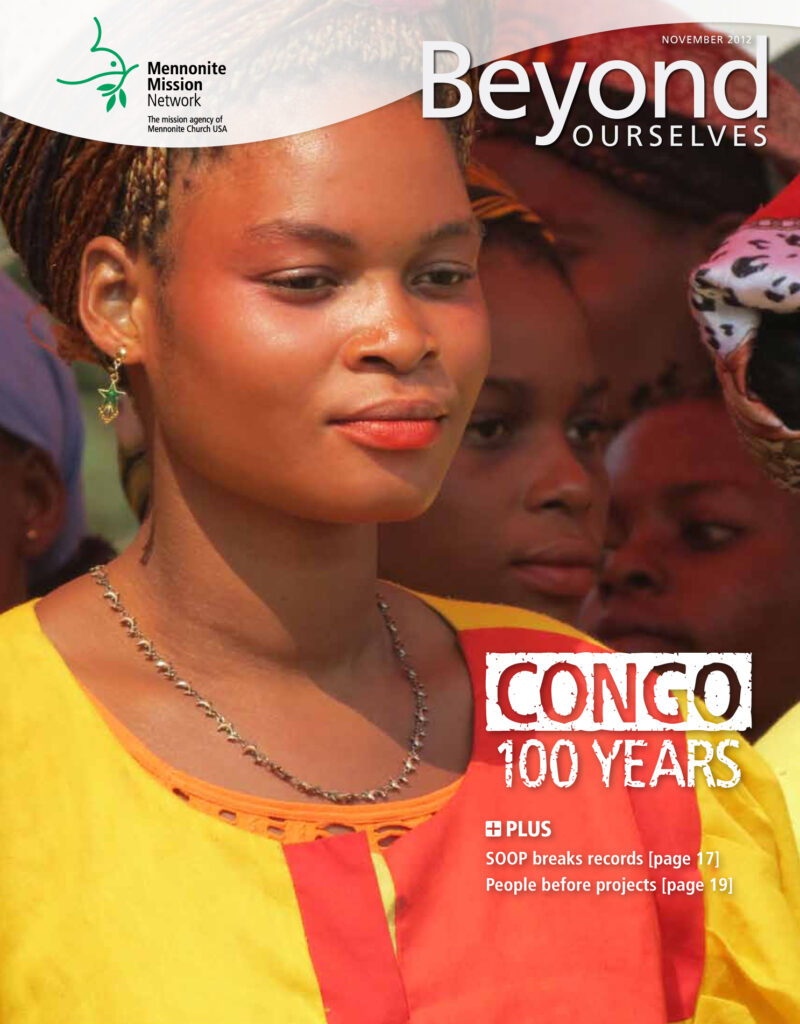Joy and hope amidst injustice in the Congo
By Lynda Hollinger-Janzen
I experience life in the Congo as spicy pili-pili, the hot pepper used to season greens, that most Congolese eat with their fufu day after day—if they are fortunate enough to eat. The intense delight of taste buds is accompanied by a long-lasting burn, all part of the same experience.
In July, I was blessed to be one of a 30-member delegation from North America and Europe who joined Congolese Mennonites in celebrating two milestone anniversaries. We marveled at the hospitality extended to us—dancing processions of welcome, accompanied by gifts of clothes, woven baskets, wild honey and feasts.
Yards away from the heavenly worship, in a cart pulled by a human being, lay the bloodied head of a cow atop the mountain of meat that would feed us, the international guests, first. The leftovers would be shared by hundreds of Congolese brothers and sisters.
Life in the Congo is not sugar-coated. Congolese Mennonites have watched their children and spouses die—from malaria, malnutrition, and firing squads. In the century corresponding to Mennonite presence in the Congo, the Congolese people have endured 13 years of ghastly tyranny under Belgium’s King Leopold II, 52 years of colonization, civil wars that go on and on, and 32 years of brutal dictatorship. Now, although there have been improvements on the political front, the economic situation of the average person remains precarious with a per capita income of less than $400 per year, according to 2011World Bank figures.
Delegation members, the materially wealthy in the global Mennonite Church, struggled to integrate all aspects of the reality we were seeing. One of us, Rick Derksen, who had ministered in the Congo with his family for 21 years, said, “Most Congolese struggle against poverty and injustice on a daily basis and they keep faith, joy and hope alive in the midst of it all.”
My prayer for each of us is that we learn from our Congolese brothers and sisters to abandon ourselves in worship that gives us a foretaste of heaven and that includes care for the brutalized and the hurting person. May we learn to receive gifts and share gifts with open hands and hearts.
Lynda Hollinger-Janzen is a staff writer for Mennonite Mission Network.

